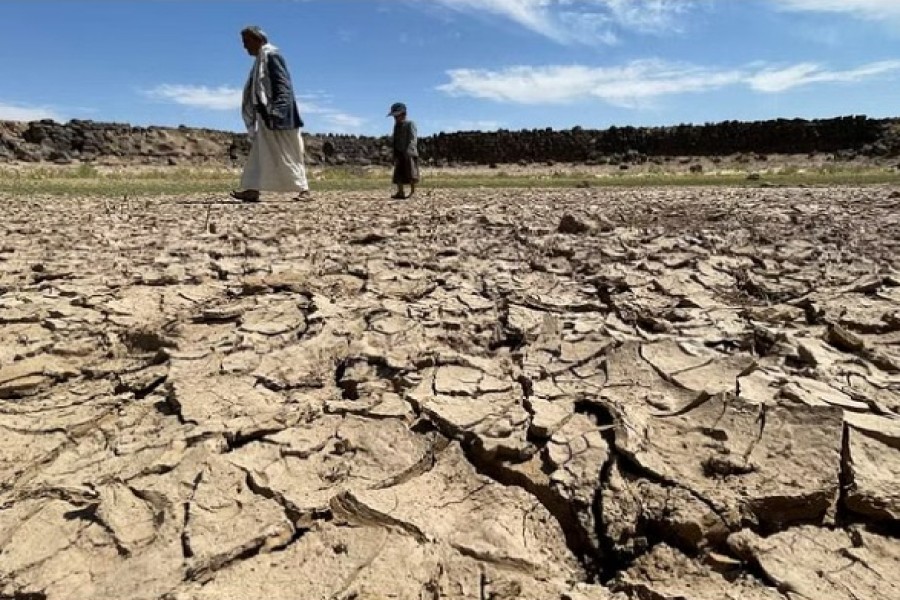Farmers are draining groundwater around Yemen's capital and removing soil to cultivate the narcotic green leaf qat that dominates life in the country, threatening to exhaust precious resources in the climate-vulnerable nation.
Chewing qat is a national pastime and demand is one of the few certainties in a nation torn apart by a seven-year war that has wrecked the economy and caused a dire humanitarian crisis and left millions facing hunger, reports Reuters.
Qat can earn three times the revenue of any other crop but the steady cash flow comes at a heavy price. The bitter-tasting plant requires deep-well irrigation and disproportionate use of water, exacerbating Yemen's water scarcity problem.
The conflict has destroyed water infrastructure, leaving millions of people without safe water to drink or grow crops. The traditional terraced farming system, used as a source of food and livelihood in the arid and mountainous Arabian Peninsula nation, has been neglected.
Farmers in Al-Haweri and Bait al-Dhafif, villages outside the capital Sanaa, where fruits and grains were cultivated, now plant qat on new terraces built from soil dug from fields below, leaving a wasteland of huge pits behind.
Amid the uncertainties of war, cultivating qat has advantages, taking just a few months to reach harvest. Fruit trees take three to five years. And a qat crop is harvested several times a year, while fruits are harvested only one time per year.
But climate change is making Yemen's rainfall less reliable, the World Bank said in August. The Sanaa basin aquifer is being drained rapidly, with farmers in al-Haweri saying they drill 550 metres (1,800 ft) to reach the ground water while in Bait al-Dhafif. they say they have to go up to 1,000 meters (3,300 ft)deep.
The past few years seen droughts in Yemen interspersed with intense rain, causing flash floods that did not replenish aquifers.
One recent report forecast that the East Mediterranean and Middle East will see temperatures rising nearly twice as fast as the global average, with overall warming of up to 5 degrees Celsius or more by the end of the century.
The report prepared by The Cyprus Institute is due to be presented at COP27, the United Nations climate summit of world leaders currently being held in Egypt.
"Due to the lack of rain and the receding of the wells, all the (farms) dried up," Khaled Measer, a farmer in Bait al-Dhafif said as he stood in his parched vineyard, the only one left standing as neighbouring grape farms buckled.
"It's all over," Measer told Reuters.
In Al-Haweri, greenhouses lie abandoned.
Some farmers like Yahya al-Yazidi are still trying to hold on and salvage food crops in a country where 80% of the 30 million population is reliant on aid. But he says he needs help.
Yazidi grows wheat and vegetables. His well dried up recently at a depth of 320 meters, and he is appealing for a license from authorities to dig deeper.
"I have crops, and greenhouses with cucumbers and tomatoes that need water every second day," said Yazidi. "The crop, as you see, is half-ripened. It needs water."


